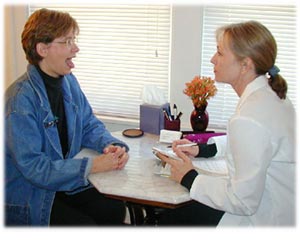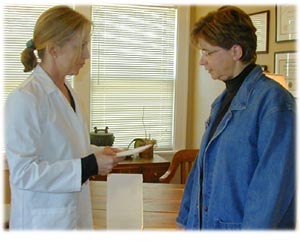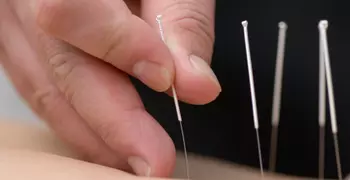What Happens When You Visit a TCM Practitioner?

Usually when people go to visit a healthcare provider, they are feeling sick or something is wrong. In the world of Chinese medicine, people are encouraged to consult with a TCM doctor before something goes wrong so that they may be advised how to maintain their health, optimize their wellbeing, and prevent illness.
This is a lot easier to do if you are relatively healthy to begin with. Why wait till you are thirsty before digging a well? But most of us wait, often times to our detriment.
How does a TCM practitioner make a diagnosis?
If you were to visit a TCM practitioner with a specific complaint, the practitioner would assess your situation in its entire context. First, a typical TCM practitioner will gather data. She will listen to your story, as well as gather information from "nonverbal elements," such as your demeanor, movement, voice, bodily sounds, and complexion. She will examine your tongue, take your pulse and temperature, and then feel your skin, muscle tone, internal organs, etc, as appropriate.
First, a typical TCM practitioner will gather data. She will listen to your story, as well as gather information from "nonverbal elements," such as your demeanor, movement, voice, bodily sounds, and complexion. She will examine your tongue, take your pulse and temperature, and then feel your skin, muscle tone, internal organs, etc, as appropriate.
Your TCM provider is working under a set of diagnostic principles that strive to identify imbalance. This imbalance is made manifest by patterns of disharmony (known as bian zheng). An example of imbalance made manifest might be a headache.
The TCM provider would look at the headache in a large context, seeking to find if this disharmony is caused by excess (like too much stress or activity) or deficiency (like not enough food or sleep). For more information, see What Is Qi? (and Other Concepts).
How does a practitioner decide on treatment options?
 Once the TCM practitioner has recognized the pattern of disharmony and made a diagnosis, she works with you to resolve the disharmony. The guiding treatment principle is to create harmony between yin and yang in the easiest and least invasive way possible without creating further disharmony.
Once the TCM practitioner has recognized the pattern of disharmony and made a diagnosis, she works with you to resolve the disharmony. The guiding treatment principle is to create harmony between yin and yang in the easiest and least invasive way possible without creating further disharmony.
In other words, the TCM practitioner seeks to remove what is excessive and to replenish what is deficient.
The focus is always on you, the patient, not the disease. As a result, the treatment strategy is highly personalized, taking into account not only your condition, diet and lifestyle, but your family situation, community status, and environment.
What are some of the options?
Your TCM practitioner can select from a number of treatment options and will usually employ a combination of several methods, ranging from acupuncture and herbal medicine to patient education and lifestyle counseling. Some treatment modalities are used in the clinic (such as acupuncture, moxibustion, and therapeutic massage).
Many TCM practitioners also prescribe herbal formulations for a certain length of time to help facilitate recovery or to maintain health and prevent disease. Click on the links to the right for more information about specific treatment practices.
In addition to the clinic treatments, you will need to practice most of the methods that restore and cultivate harmony at home and in your daily life. Such "home practice" methods include dietary and lifestyle suggestions, meditation, self massage, stretching, and various physical exercises.
To experience a visit to a TCM practitioner, do the activity called Visit a TCM Practitioner.
Eisenberg, David. Encounters With Qi: Exploring Chinese Medicine. New York, NY. Viking Penguin Inc. 1987
Farquhar, Judith. Knowing Practice: The Clinical Encounter of Chinese Medicine. Boulder, CO. Westview Press. 1994.
Wu,Yan and Fischer, Warren. Practical Therapeutics of Chinese Medicine. Brookline, Mass.: Paradigm Publications. 1997


